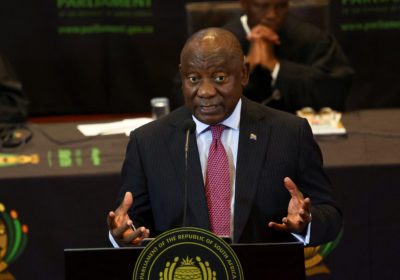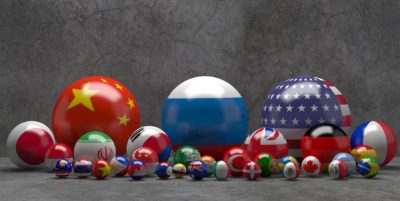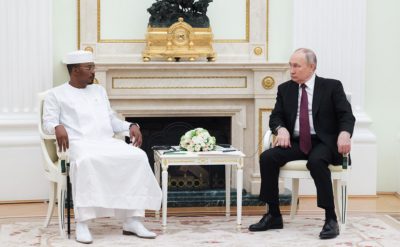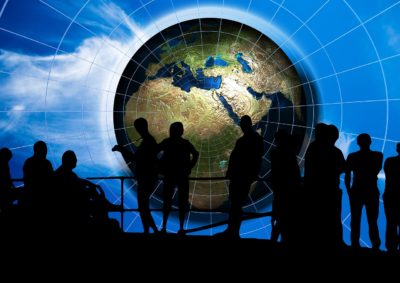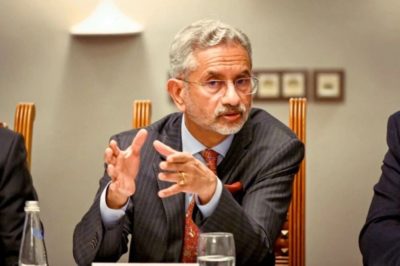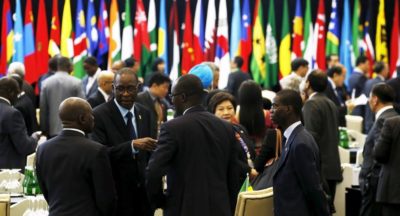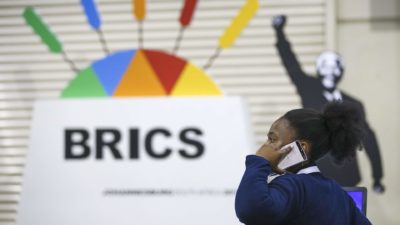South Africa Expects Retaliation from the West for Israel, but the Country Is Ready to Withstand It
South Africa is preparing for retaliatory measures from Western regimes meant to punish one of Africa’s leading powers and a BRICS member for launching an international legal prosecution against the Zionist regime. The South African leadership, however, believes in the country’s ability to resist these Western actions. South African President Cyril Ramaphosa has warned…
The world on the edge of changing global power politics. Part II
Many Western politicians are well aware of what a powerful blow the West has dealt itself by its self-serving policies and, in particular, anti-Russian sanctions and the fight against Russia, undermining its reputation among many countries around the world. Former Austrian Foreign Minister Karin Kneissl listed the consequences of illegal anti-Russian sanctions on the air of the Turkish TV channel TRT World. According to Kneissl, many countries, observing the sanctions against Russia, assume that it can happen to them as well. “I would say that there is a loss of trust in many institutions. And those are the main losses…
West Looks Panicky Over Africa Shift East
The recent meeting in Moscow between Chad’s President Idriss Deby and Russia’s Vladimir Putin is the latest sign Africa is embracing the emerging multipolar world order. Western reaction to this and a score of other linkups has been on the level of a geopolitical panic. One by one, and in batches, the nations of Africa are spurning the old-world imperialists, especially France. And Chad is a keystone nation in the dead center of the continent…
The new economic realities of a multipolar world
The dominance of the West in international relations is coming to an end not only geopolitically, but also in terms of geoeconomics. Despite the loud declarations of Western elites and attempts to slow down this process by all means, everything indicates that the share of the Western minority in international economic relations will continue on a downward path…
Pakistan and the Coming Indo-Pacific Bandwagon Effect
Very soon, Pakistan will be forced to cease any ideas of adopting a so-called “hedging” strategy to survive and thrive in the new multipolar world. With China, Russia, and the growing BRICS contingents in focus (particularly Iran), it should be clear that critical Indo-Asian nations and a handful of smaller states will soon hop on the Russo-Chinese bandwagon. The U.S. and its allies have but one chance to remain key partners and maintain economic and geostrategic security. Acceptance of the rising multipolar world community and cementing policies…
Zenebe Kinfu: "African issues are prioritised in the Russian media"
In his exclusive interview with the New Eastern Outlook, Mr Zenebe Kinfu Tafesse, President of the Union of African Diasporas, described how he sees Russian-African relations, explained why the Second Russia-Africa Summit turned out to be more economic and shared his thoughts on neocolonialism in Africa…
The Global South is increasingly vocal about its ambitions
One of the main defining features of the UN Climate Change Conference COP28 2023, which just concluded in December, was the rapidly growing influence of the so-called Global South. This was reflected in the issues discussed and deals struck, including a landmark agreement on ‘loss and damage’ on the opening day of the summit. While the concept of the Global South dates back to the 1960s, the use of the term has grown significantly in recent years, including during the violent conflict in Gaza between Israel and Hamas. While the Global North generally corresponds to the Western world…
Visit of Indian External Affairs Minister S. Jaishankar to the Russian Federation
The visit of Indian External Affairs Minister Subrahmanyam Jaishankar to Russia on December 25-29 is an event that deserves attention in terms of assessing the main trends in the change in the world order, which was established for a short time with the end of the Cold War. Despite the fact that today we can only roughly imagine the most general characteristics of its (future) image. But doing this will be pointless if it becomes clear that the “transition process” will inevitably result in another global massacre…
Has the U.S. Dollar Already Struck the BRICS Iceberg?
As of this writing, US dollar reserves have fallen by 6.5% as foreign central banks cut ties with the currency. The BRICS countries, especially those in the global South, are leading the charge to depart from the decades-long dominance of the American currency. China and Japan’s central bank shares show the most significant rise in central banks. Interestingly, the Euro is just slightly behind in losing a share in the world currency market. If BRICS stops using the USD, there will likely be a financial disaster in the United States, with hyperinflation wreaking havoc across all sectors in the US…
BRICS-Africa trade and economic relations - the answer to the myths of the West
Despite the strong strengthening of the position of non-Western powers in relations with the African continent, the West continues to insist that it is, collectively, Africa’s main economic partner. But statistics is a delicate matter. And in fact, BRICS is already the largest trade and economic partner of African states. For many years now, China, as a separate state, has been considered Africa’s main trade and economic partner. At the same time, the Western establishment does not lose the opportunity to oppose this reality with all its might and impose the view that it is the West, more precisely the European Union…
Financial Elites Take One Back - The IMF’s Argentina Coup
Within hours of Javier Milei’s election win over Argentinian President Alberto Fernández, Latin America’s 3rd largest economic power withdrew its petition to join the BRICS. Scheduled to become a member of the bloc at the start of the coming year, Argentina will shun what Fernández and many financial analysts called a “great opportunity.” The struggling Argentinians will sink with the other nations clinging to the dollar hegemony. For those who question “why” – the reasons are obvious. Who could stand in the wings of such a reversal of fortune for South America’s 2nd biggest economic power?
How BRICS is Reinventing Itself Amidst Chaos
Israel’s war on Gaza has shaken global politics – not only because of its sheer brutality, but also because this war has reified geopolitical alignments further along the pro and anti-Israel – which also translates directly into pro or anti-US – standings. These geopolitical alignments have created a possibility of realignments, including reforming existing blocs. The extraordinary BRICS summit held in the 3rd week of November points to this possibility very clearly. At one level, the proceedings of the summit revealed the pro or anti-US/Israel positions – especially of India – within the bloc, and, at another level, the summit revealed…
